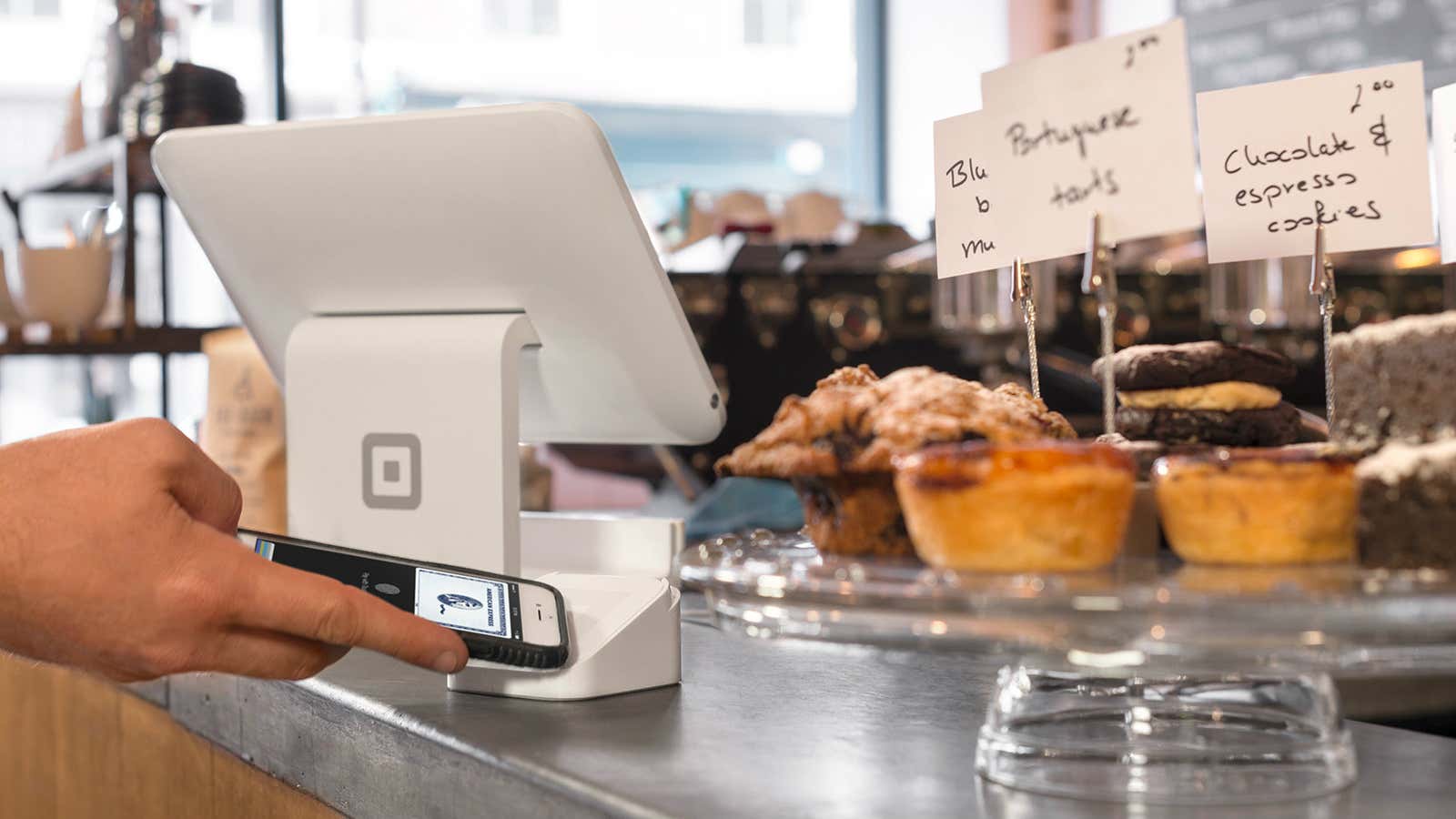As more payments take place electronically and bank branches slowly disappear, your mobile phone is an increasingly important piece of financial real estate. Square’s lofty app ranking suggests the battle over your home screen presents an opportunity for upstarts taking on the established financial players.
The San Francisco-based firm’s Cash App has shot up Apple’s App Store finance rankings, while JPMorgan’s Chase app has drifted lower in recent years, according to data compiled by Apptopia. PayPal and Venmo are also near the top of the chart.
Apple doesn’t disclose exactly what goes into its ranking algorithms, but Apptopia says downloads are an important factor. The velocity of uninstalls and reviews are also components for determining an app’s ranking.
Granted, a full-fledged banking app differs from one you downloaded to pay back a friend that one time. But the rankings highlight how a new breed of fintech firms, like Credit Karma and Robinhood, are quickly gaining traction. As for Square’s Cash App, Apptopia says it has generally ranked ahead of PayPal-owned Venmo in Google Play and App Store since around September. That doesn’t mean Cash is necessarily displacing Venmo, but it suggests it is catching up. Some 84% of Cash App users are likely to have already installed Venmo, according to Apptopia.
Square CFO Sarah Friar noted in an interview that the financial industry has been spared the tech disruption that’s upended the retail sector. The company has been seeking licensing that would allow it to take government-insured deposits, suggesting that the digital upstart is looking to become more like a bank.
Some high-placed experts think tech disruption could very well be coming to finance. Francesca McDonagh, chief executive of Bank of Ireland, say tech is the real competitive threat to banks and that things like payments “are just a means to an end for some of the big fintech [companies],” according to the Financial Times (paywall).
With this in mind, the big banks are upping their app game. Goldman Sachs bought Clarity Money (paywall) earlier this year, giving the Wall Street bank a mobile storefront. JPMorgan recently rolled out its all mobile bank, Finn, for iPhone users. “I would look at Finn as one of many sort of digital innovations that we’re doing,” JPMorgan CFO Marianne Lake said in a conference call.
The New York-based bank, which has roots going back to 1799, has 31.7 million (pdf) active mobile customers as of the most recent quarter, up 12% from a year earlier. Its count of bank branches declined 2% during that span, to 5,091, though the bank has said it is opening up to 400 branches in new markets in the coming years.
JPMorgan also helped launch Zelle, a peer-to-peer payment network of US banks, which is expected to overtake Venmo this year, according to a forecast by eMarketer. It will grow more than 73% in the US, to 27.4 million users, pulling ahead of Venmo, with 22.9 million users, and Square Cash, with 9.5 million. Zelle is integrated into bank apps, so its own app ranking doesn’t necessarily reflect how often it’s used.
The major banks have a number of advantages, of course—they are big, diversified companies that make a lot of money and are protected by a moat of regulation. JPMorgan recently posted a second-quarter profit of $8.3 billion (pdf). By comparison, Square’s operating loss widened to $21 million in the first three months of the year, from $14 million in 2017.
Even so, financial heft may only go so far. As the mobile economy takes off, the popularity of apps like Square and Venmo show how quickly the game is changing.
